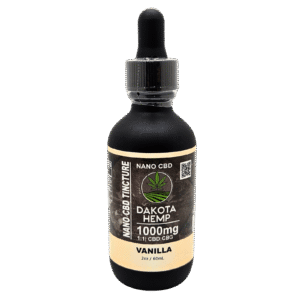The home décor market in the UK continues to flourish, with cushion covers being a perennial favourite among retailers and consumers alike. Starting a cushion cover wholesale business can be a lucrative venture if approached strategically. This comprehensive guide outlines the essential steps to establish and grow your cushion covers wholesale business in the competitive UK market.
Understanding the UK Cushion Cover Market
The UK home textiles industry is valued at several billion pounds, with decorative items like cushion covers representing a significant portion of this market. Before diving in, conduct thorough market research to identify current trends, potential competitors, and target customer segments.
The UK cushion cover market caters to various sectors including home décor retailers, interior designers, furniture stores, online marketplaces, and hospitality businesses. Each segment has unique preferences regarding design, material, price points, and ordering patterns. Understanding these nuances will help you position your wholesale business effectively.
Current trends show a growing preference for sustainable materials, locally manufactured products, and designs that complement the broader movement toward creating comfortable, personalized living spaces. Seasonal collections remain popular, with retailers refreshing their cushion cover selections multiple times per year.
Creating a Business Plan for Your Wholesale Operation
A comprehensive business plan serves as your roadmap and is essential for securing financing. Your plan should include:
- Executive summary outlining your business concept
- Market analysis demonstrating the viability of your venture
- Detailed description of your product lines
- Marketing and sales strategies
- Operational plan including production, storage, and distribution
- Financial projections including startup costs, pricing strategy, and expected returns
Your business plan should address how you’ll differentiate your cushion cover wholesale business in a competitive market. This could be through unique designs, superior quality, sustainable manufacturing practices, competitive pricing, or exceptional customer service.
Include realistic financial projections that account for seasonal fluctuations common in the home décor market. Having solid numbers will help when approaching lenders or investors, and will guide your business decisions during the crucial early stages.
Legal Requirements and Business Registration
Navigating the legal landscape is crucial for establishing a legitimate wholesale business in the UK. You’ll need to:
- Choose a suitable business structure (sole trader, partnership, or limited company)
- Register your business with Companies House if forming a limited company
- Register for VAT if you expect your taxable turnover to exceed the current threshold (£85,000 as of 2023)
- Obtain necessary licenses for importing fabrics if sourcing from abroad
- Ensure compliance with UK product safety standards and labeling requirements
It’s advisable to consult with a business solicitor who specializes in retail and wholesale operations to ensure all legal bases are covered. Additionally, joining trade associations like the British Home Enhancement Trade Association (BHETA) can provide valuable guidance on industry-specific regulations.
Sourcing Quality Fabrics and Materials
The foundation of a successful cushion cover business lies in sourcing high-quality fabrics at competitive prices. You have several options:
- Domestic UK Suppliers: Working with local textile manufacturers like Create Fabrics can ensure reliable quality and faster delivery times. Create Fabrics offers a wide range of upholstery and decorative fabrics suitable for premium cushion covers, with the added benefit of supporting local businesses.
- International Suppliers: Countries like India, China, and Turkey are major textile exporters offering competitive pricing. However, consider import duties, shipping times, and potential communication challenges.
- Sustainable Sources: As eco-consciousness grows among consumers, exploring organic cotton, recycled polyester, or other sustainable materials can be a strong selling point.
When selecting suppliers, evaluate factors beyond just price. Reliability, minimum order quantities, lead times, and consistency in quality are equally important considerations for a wholesale business. Establish relationships with multiple suppliers to mitigate risks and ensure continuity of supply.
Setting Up Your Production Process
Your production setup will depend on whether you’re manufacturing in-house or outsourcing. Both approaches have their merits:
In-house Production:
- Greater control over quality
- Flexibility to produce smaller batches
- Ability to quickly implement design changes
- Higher initial investment in equipment and skilled labor
Outsourced Production:
- Lower startup costs
- Access to established manufacturing expertise
- Ability to scale production more easily
- Less direct oversight of quality control
If choosing the outsourcing route, thoroughly vet potential manufacturing partners. Request samples, visit facilities when possible, and start with smaller orders to test quality and reliability. Establish clear quality control protocols and communication channels to maintain consistent standards.
For in-house production, invest in quality sewing machines, cutting tables, and other essential equipment. Hire skilled machinists with experience in home textile production, and implement efficient workflows to maximize productivity.
Developing Your Product Range
A well-curated product range is essential for attracting and retaining wholesale clients. Consider these aspects when developing your cushion cover collection:
- Design Variety: Offer a mix of classic patterns and trendy designs to appeal to different market segments
- Size Options: Stock standard UK cushion sizes (45x45cm, 50x50cm, 60x60cm) as well as rectangular and bolster options
- Material Choices: Include options at different price points, from premium linens to more affordable polyester blends
- Seasonal Collections: Plan for spring/summer and autumn/winter collections with appropriate colors and patterns
- Custom Capabilities: Offering customization services can attract retailers looking for exclusive designs
When sourcing fabrics for your initial collection, suppliers like Create Fabrics can provide valuable insights on trending materials and patterns in the UK market. Their expertise can help you curate a product range that resonates with current consumer preferences while maintaining competitive pricing for your wholesale clients.
Regular market research and attendance at trade shows like the January Furniture Show or Home & Gift Buyers’ Festival will help you stay ahead of emerging trends and continuously refresh your product offerings.
Pricing Strategy for Wholesale Success
Developing a solid pricing strategy is crucial for maintaining profitability while remaining competitive. Consider these factors:
- Cost of materials (fabric, thread, zippers, labels)
- Production costs (labor, machinery overhead)
- Packaging and shipping expenses
- Administrative and marketing costs
- Desired profit margin
Most wholesale businesses operate on a keystone pricing model, setting wholesale prices at roughly double the cost of production. This allows retailers to then double the wholesale price when selling to consumers, creating a sustainable margin at each level of the supply chain.
Volume-based discounts can incentivize larger orders from retailers. Consider implementing a tiered pricing structure that rewards bulk purchases while maintaining your profit margins. Be transparent with your pricing structure to build trust with retail clients.
Marketing Your Wholesale Cushion Cover Business
Effective marketing is essential for attracting retail buyers to your wholesale business:
- Professional Website: Create a B2B-focused website showcasing your product range with high-quality images, minimum order quantities, and clear terms of business.
- Digital Catalog: Develop downloadable catalogs with product specifications, pricing, and ordering information.
- Trade Shows: Exhibit at industry events like Top Drawer, Spring Fair, or the Manchester Furniture Show to connect with potential retail buyers.
- LinkedIn Presence: Establish a professional presence on LinkedIn to network with interior designers, home décor retailers, and industry professionals.
- Email Marketing: Build a database of potential clients and implement regular email campaigns highlighting new collections and special offers.
Remember that marketing to businesses differs from consumer marketing. Focus on communicating value, reliability, and how your products can help retailers increase their sales and margins. Providing marketing support materials that retailers can use to promote your cushion covers to their customers can be a significant value-add.
Building Strong Relationships with Retailers
The wholesale business is fundamentally relationship-driven. Building strong connections with your retail clients will lead to repeat orders and business growth:
- Provide excellent customer service with dedicated account managers for larger clients
- Offer flexible minimum order quantities, especially for new clients testing your products
- Maintain reliable delivery schedules and transparent communication
- Create favorable payment terms that work for both parties
- Provide point-of-sale materials to help retailers merchandise your products effectively
Consider implementing a customer relationship management (CRM) system to track interactions, preferences, and purchasing patterns of your retail clients. This data will help you provide personalized service and anticipate their needs.
Regular check-ins with your retail partners can provide valuable feedback on how your products are performing in the market, helping you refine your offerings and identify new opportunities.
Scaling and Expanding Your Wholesale Business
As your cushion cover wholesale business establishes itself, consider these growth strategies:
- Expand Your Product Range: Add complementary products like table linens, throws, or bedding to offer retailers a more comprehensive soft furnishings solution.
- Explore New Market Segments: Consider specialized collections for hospitality, corporate gifts, or the wedding market.
- International Expansion: Once established in the UK, explore opportunities in European markets or further afield.
- Dropshipping Services: Offer dropshipping for online retailers who don’t want to manage inventory.
- White Labeling: Provide white-label or private label services for larger retail chains looking to develop their own branded lines.
When scaling, maintain the quality standards that built your reputation. Gradual, sustainable growth is preferable to rapid expansion that compromises product quality or customer service.
Conclusion
Starting a cushion cover wholesale business in the UK offers significant potential for entrepreneurs with an eye for design and a head for business. Success in this competitive market requires a combination of quality products, strategic pricing, effective marketing, and excellent customer service.
By carefully sourcing materials from reputable suppliers, developing distinctive collections, and building strong relationships with retailers, you can establish a thriving wholesale operation. Remember that consistency and reliability are paramount in the wholesale business – retailers need partners they can count on to deliver quality products on time, every time.
With dedication and strategic planning, your cushion cover wholesale business can become a valued supplier to the UK’s vibrant home décor market, growing alongside the retailers you serve.
FAQs About Starting a Cushion Cover Wholesale Business
- What is the minimum investment needed to start a cushion cover wholesale business in the UK?
Initial investments typically range from £10,000 to £50,000 depending on your production approach (in-house vs. outsourced), inventory levels, and marketing budget. Lower-cost startups are possible by beginning with a limited product range and scaling gradually.
- How do I find retailers interested in purchasing wholesale cushion covers?
The most effective methods include exhibiting at trade shows, direct outreach to home décor retailers, utilizing LinkedIn for B2B networking, and joining industry associations where you can connect with potential buyers.
- What minimum order quantities (MOQs) should I set for my wholesale business?
For new wholesale businesses, keeping MOQs relatively low (25-50 units per design) can help attract smaller retailers. As you establish relationships, you can implement tiered pricing that incentivizes larger orders without excluding smaller buyers.
- How can I compete with cheaper imported cushion covers?
Focus on your unique selling points such as local production, faster turnaround times, lower minimum orders, unique designs, or superior quality. Working with trusted UK suppliers like Create Fabrics allows you to emphasize the British-made aspect that many retailers value.
- What are the current profit margins in the cushion cover wholesale industry?
Healthy wholesale margins typically range from 50-100% over production costs, with specialty or designer collections commanding higher margins. Your pricing strategy should account for all costs while remaining competitive in the market.

